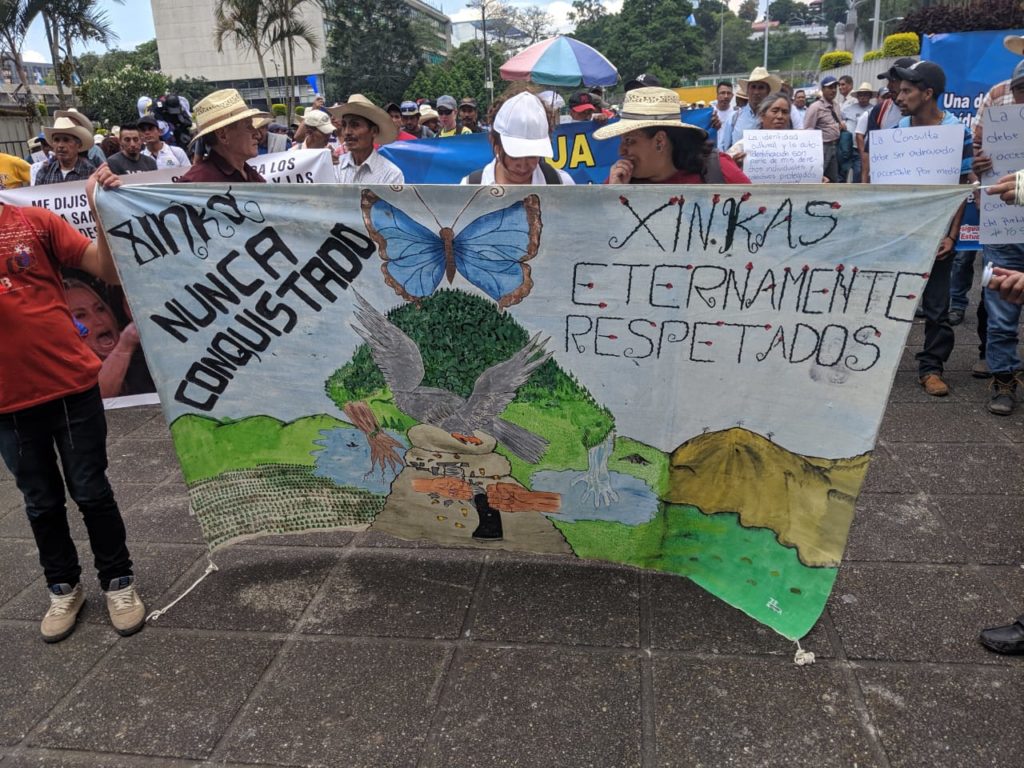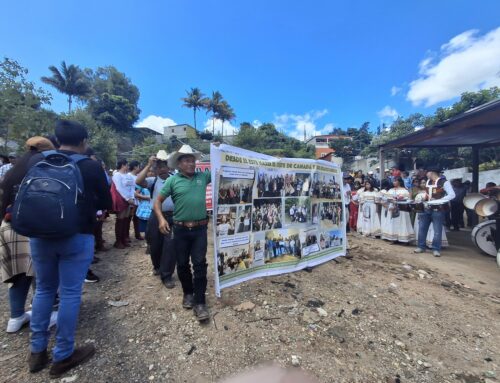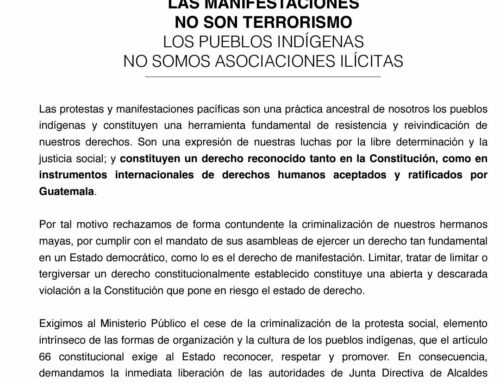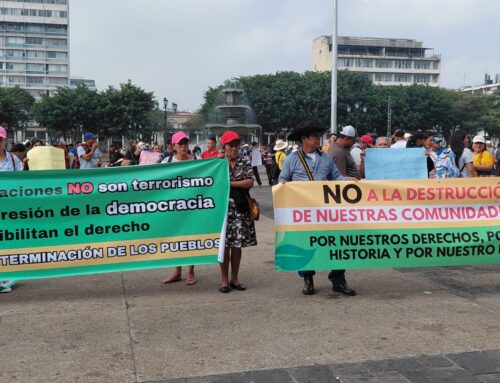
A banner reads: “Xinkas: never conquered, eternally respected.”
Summary of Recommendations from Guatemala’s Human Rights Ombudsman (PDH) on the Court-Ordered Consultation over the Escobal mine
A report on the status of the Constitutional Court-ordered consultation with the Xinka people over the future of the Escobal silver mine from Guatemala’s Human Rights Ombudsman (PDH), first published in September 2019, has just been made public. The human rights authority issues observations and recommendations in its report to the Ministry of Energy and Mines (MEM) and the Ministry of Environment and Natural Resources (MARN) regarding serious errors in the consultation process that violate Xinka rights and due process.
The Supreme Court suspended the Escobal mine in July 2017 for discrimination and failure to consult with the Xinka. The Constitutional Court (CC) ratified this decision in September 2018 and ordered the MEM to undertake a consultation. The PDH is constitutionally mandated to make recommendations to government officials regarding human rights abuses and the CC designated the PDH to supervise the consultation process.
In its missive to MEM, the PDH states that the Ministry’s refusal to accept the Xinka’s representatives is a misinterpretation of the 2018 CC sentence and a violation of international conventions. Specifically, the PDH states that Xinka representatives must be identified according to the Xinka people’s own “customs, institutions, and traditions,” emphasizing that the Ministry’s insistence on limiting Xinka participation to two representatives and two alternates is contrary to the Court’s order. The CC, notes the PDH, intentionally avoided issuing rigid instructions to ensure full and free Xinka participation.
The PDH observes that repeat attempts by the Xinka to accredit their representatives have failed and that MEM has carried out two pre-consultation meetings without Xinka participation. The human rights authority recommends that MEM guarantee Xinka participation, “taking into account that in this case the Xinka Parliament has already carried out their local election of representatives, the names of which were already sent directly to [the Ministry’s] office.”
In its missive to the MARN, the PDH states that the Ministry violated due process by completing the first phase of the consultation – definition of the mine’s area of influence –before the enforcement order had been issued. At the time, in November 2018, the Xinka Parliament immediately appealed this violation. To date, both the Supreme Court and MARN have failed to adequately resolve the fundamental issues raised by the Xinka Parliament in its multiple appeals to both institutions. The PDH recommends that MARN carry out a procedural review of its actions thus far given that violations of due process “would affect the development of the entire consultation process and the actions of corresponding public institutions based on the related sentence.”
The PDH also recommends that:
- MEM and MARN work together to uphold due process, particularly with regard to actions taken before the enforcement order was issued;
- MEM include representatives that the Xinka people have delegated and that their participation be guaranteed in all phases of the consultation, including definition of the area of influence;
- MARN take special care to ensure Xinka participation in all phases of the consultation, especially as it relates to the environmental instruments used to approve the area of influence of the Escobal mine.
This summary was written by the EARTHWORKS, Institute for Policy Studies-Global Economy Project, and Network in Solidarity with the People of Guatemala (NISGUA). For more information on irregularities and discrimination in the consultation process, see “Guatemalan government discriminates against Xinka, puts Escobal mine consultation at risk,” an in-depth report by EARTHWORKS and Institute for Policy Studies-Global Economy Project.






Leave A Comment